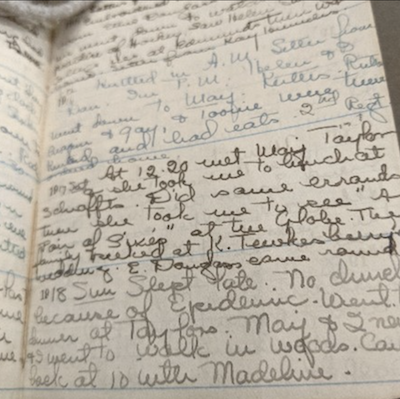We had a conversation recently about a book on Swedish Death Cleaning. It sounds morbid, but it got us talking about the types of papers we want to hand down to the next generation, which might be important to family historians and genealogists of the future. This ties into our family business, which designs and sells high-quality genealogy charts. for recording ancestry and family stories.
While we do not advocate saving papers of limited value (business records, financial statements, school reports) what about other types of documents, that may be considered core genealogy, like a diary?

Such documents could include personal letters, journals, or writings that reveal something of a person’s life or perspective. We had conflicting ideas about this:
Me:
What I wouldn’t give for a copy of my great-grandmother’s diary!
Spouse:
A journal is a very personal place for expressing random, rambling, and sometimes unsettled thoughts. It’s therapeutic – once you put it on paper, it makes you feel better. But I wouldn’t feel comfortable for people to look at my private thoughts.
She makes a great point. Privacy concerns extend to other types of documents, too. Would you want an old letter to an ex, written when you were 20 years old, preserved and shared with descendants? What about an angry letter, or a document detailing painful medical issues?
Famous authors sometimes request the executor to destroy private papers. Franz Kafka, Edward Albee, and others had specific instructions governing letters, manuscripts, and other documents.


